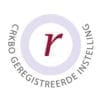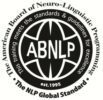Intensive NLP Practitioner course
in English:
the best investment
in yourself!
NLP Practitioner Intensive Training in English
Are you ready to take the next step? With the NLP Practitioner Intensive you will improve your personal growth. Many of our participants follow the practitioner training course, because they want:
- to communicate better to achieve more
- a deeper connection with themselves and others
- to discover what they really want in life.
- to gain greater insight into themselves and others
- to achieve their goals (lose weight, eat healthier, financial independence or whatever)
- simply want to be happier and lead a more relaxed, meaningful and energetic life
This NLP Practitioner Training will offer you clear insights, techniques and skills to achieve the above and other goals. The training is practical and provides immediate results in only 8 days!
Our NLP Practitioner Intensive Training is an accelerated training program that familiarizes you with the power of NLP in just 8 days. Immerse yourself in the world of mindset, behavioral change and communication. In this ‘retreat’ format there are no days or weeks between the various training days so intensive work and real progress can be done. Every day becomes an integration of everything you learned the previous days.
This NLP Practitioner Training is ideal for people with a busy schedule who want quick results!
You are at an important point in your life.
NLP stands for Neuro-Linguistic Programming (NLP). With NLP, you gain insight in deeply ingrained patterns in your mind and body. After that you are going to change them with the help of proven mental techniques. With NLP, you can influence your subconscious mind and direct your emotions and change your internal processes for dialogue and use your body to get a grip on your mind.
The great thing is that anyone can learn these techniques. We offer high-level courses which are at the same time practical and accessible.
The NLP Practitioner Intensive Training is a manual for your brains
Did you know that 95% of our behaviour is determined by subconscious patterns and habits? With NLP, you gain insight into subconscious and ingrained patterns, for example your communication with others, a negative mindset, self-subversive behaviour or the achievement of goals. In the next step you will change your habits with the help of different mental techniques
The NLP Practitioner Itensive training is a manual for your brain. It is an 8 day training course that teaches you how to recognise subconscious processes that you know how to change where necessary. It is a manual for the rest of your life. The training is full of “eureka” moments and tips to gain insight in yourself and others and it provides you with practical tools.
“By means of neuro linguistic programming, you gain insight in your own behaviour and that of others. NLP trainers of UNLP belong to the top of the Dutch market.”
Dr Vincent van der Burg, co-founder of UNLP
You will not only get a good insight in your own acting, thinking and feeling, but also that of others. Through this insight you grow into who you are and you are able to improve your communication with others in work and private relationships.
So, you will improve your communication with others. You will excel at interpreting non-verbal behaviour, connecting and having conversations with others and directing their behaviour.
You will learn to set and achieve goals. You discover what you really want and how you can reach this through full commitment. You follow an optimal work plan to achieve each goal in a short time. In the NLP Practitioner Training Course, you learn how much you can achieve in a few moments, which take some therapists years to accomplish. For example, you want to earn more money, a better career or a change of career. Or you wish more in-depth relationships or more friends or a better interaction with yourself or others.
You will receive practical tools with which you can determine how you want to feel. It is not for nothing that the NLP Practitioner Training Course at UNLP is a roadmap for life. Gaining control over how you feel is a valuable tool in this. In the NLP Practitioner Training Course you learn how you can evoke and install desired emotions (self-confidence, self-discipline, creativity or focus, etc.) so that you can always rely on them.
You will tackle and resolve inner conflicts. On the one hand you want to stop smoking, on the other hand you want to keep your freedom, you want to live a healthy life and you want to enjoy it, you want to be in the foreground and you are fine with being in the background. These inner conflicts take a lot of energy and hinder you from achieving your goal. In the NLP Practitioner Training Course, you are going to solve these conflicts so that you gain what you want.
Who is this NLP training suitable for?
Do you, as a male or female, young or old(er), extrovert or introvert, with experience in personal growth or not at all, want to get the most out of yourself, to develop yourself and grow? And / or you want to learn NLP to use at work? To establish deeper connections with colleagues, to help teams function better and being more productive? Then this NLP training is suitable for you! Participants in a NLP Practitioner Intensive Training go beyond just reading a book or doing a one-day workshop. They are willing to invest 8 intensive days of their lives in themselves. From day one you get plenty of insights which you immediately benefit from in your daily life.
The NLP Practitioner Intensive Training will take place at our location in Amsterdam or ‘s-Graveland (Hilversum).
Study method
The training consists of a total of 8 training days. At the end of the training you will receive an International NLP Practitioner certificate accredited by the American Board of NLP (ABNLP).
Before the training starts we ask you to read the book Neuro Linguistic Programming For Dummies so you already have a basic knowledge of NLP. We will send this book to your address. A week prior to the training you will receive practical information and tips that will help you during the training days. You are central which means that you will practically work on your personal and professional development. The group process, the assignments and the personal guidance give you many useful insights. You will learn to put NLP techniques and methods into practice individually and in small groups under the guidance of the trainer and the coaches present. There is always room for questions.
Program
Day 1 and 2: Personal leadership
During these two days you will be introduced to NLP and you will learn how you can use NLP for yourself and in successful communication with others. You become familiar with the process of personal change, informal learning and how your thoughts effect your emotions and behaviours.
In addition, you will learn to engage quickly and deeply with yourself and others. You will learn to communicate at several levels and to make use of unintentional signals. You learn to interpret people verbally and non-verbally and to tune into their thoughts. With this skill in your fingertips, you can identify and influence (subconscious) blockages, motivation, obstacles, goals and intentions. You learn all this through exercises, role plays and live demonstrations on both a conscious and unconscious level.You will also determine your personal learning plan for this course.
A selection of the topics for these two days:
- Communication model
- The power of Focus (setting goals)
- Levels of communication and (subconscious) change
- Outcome model for setting goals at a subconscious level
- Representation systems
- Keys for a profound connection
- Unconscious functioning of mental association
- The three elements of NLP: attitude, techniques and philosophy
- Interpreting and influencing non-verbal behaviour
- Personal change in a safe way
- Etc.
Day 3: Master of Language
We all know the power of language. It ensures that dictators’ bizarre ideas are widely accepted. It also ensures that a first conversation turns into a love relationship. Or that you are inspired by someone who touches you on a soul level. The great thing about language is that it can be learned.
A selection of the topics of day three:
- Sub modalities: learning to monitor and adjust your thought process
- Milton model
- Meta model
- Learn to communicate and influence people on a subconscious level
- Do you really understand your conversation partner in his way of thinking, acting and feeling?
- Become a master in ‘small talk’ and deep conversations
- Etc.
Day 4: The Power of Thoughts
Are you sometimes overwhelmed with worries? Do you regularly experience stress, nerves or anxiety? Your thoughts are unprecedentedly powerful. Positive thoughts can help you feeling calm and confident. Negative thoughts can become an obstacle when they stop you form being who you want to be. To achieve your goals and to feel good wherever and whenever you want.
A selection of the topics of day four:
- Mapping Across: to learn from personal mental strategies
- Visual Swish: the technique for unlearning bad habits
- Belief change with submodalities
- Etc…
Dag 5: Emotional intelligence
On this day you start working with your emotional energy. On the one hand, you learn to neutralise the negative impact of past experiences. The memories remain but the emotional blocks that impact your daily life, disappear. On the other hand, you learn to (re)activate positive thinking in your thoughts, actions and feelings.
As a result, you can be much more yourself and you feel free, powerful and balanced. The next step is to break negative habits and to create positive ones. You will learn to use emotions instead of emotions suppressing you. This makes goals easier to achieve, life is easier and relationships are more fluid.A selection of the topics of day five:
- Activating positive feelings (self-confidence, stability and strength) wherever/whenever you want
- Neutralising the emotional impact of negative events
- Learn to feel good about yourself for no reason
- Collapsing anchor: Eliminating emotional stressors
- Reinforcing and (re)activating natural resources
- Become less sensitive to the negativity of others
- Eliminating bad habits by supplying the right emotional energy.
- Create self-confidence and rest during presentations, conversations, etc.
- Etc…
Day 6: Break Through Blockages
This block will be etched in your memory for the rest of your life. There is plenty of attention for discovering and conditioning unprecedented energy, positivity and transformation. Reading about NLP is good, but truly feeling and experiencing transformation and breakthrough are essential.
If all obstacles are out of the way, you will discover what you really want, where your passion is, what your capacities are and at what level your energy is.
A selection from the topics of day six:
- Discovering subconscious blockages
- Breaking through limiting beliefs
- Establishing positive beliefs
- Creating congruence between head (thinking), heart (feeling) and stomach (speaking)
- Identifying underlying subconscious motives
- Determining what you really want
- Conditioning a sense of success and breakthrough
- Etc.…
Day 7: The Overall Picture
Many people experience that they are confronted with the same problems over and over again despite working intensely on themselves. Life patterns do not emerge by coincidence. They are created, aware but mostly unaware, due to the influence of systems we are part of. Our way of thinking, beliefs and habits, are not just innate, but they also originate from our family.
A selection of the topics of day seven:
- Change your Personal History: free yourself from negative emotions from the past
- Visual Squash: discovering and resolving inner conflicts
- Strategies: what do you do mentally to obtain a certain result?
- What makes that you face the same problems / experience the same emotions?
- Etc…
Day 8: Transformation
This block focuses on working with timelines. A timeline is an (imaginary) line that connects all events in a person’s life in chronological order, like memories from the past, future goals and dreams. You could compare it to a ‘common thread’ or ‘path of life’, running through someone’s past, present and future.
Working with timelines is a practical, fast and effective way to remove past constraints and achieve future goals more easily. All this takes place in a pragmatic, safe and targeted way.
A selection of the topics of day eight:
- Changing limiting beliefs
- Renouncing limiting emotions / needs
- Creating an attractive future
- Etc.
We will put into practice everything we learned in the past 8 days and we will conclude with a certification.
Following NLP training at UNLP
You really want to develop yourself further as a person or a professional? NLP will help you with this. De NLP Practitioner Intensive Training from UNLP provides you with the tools and teaches you techniques that help you grow. This way you boost your personal development considerably in a fun way.
In the NLP Practitioner Intensive Training you will be presented with a transformative method to get the most out of yourself and/or others, to remove blockages from your life and to achieve what your dream of.
Read more about why you should take the NLP Practitioner Training Course here.
General
Use NLP to create the life you want and become aware of subconscious processes and techniques to change.
With the NLP Practitioner, you have the unique opportunity to indulge yourself with the principles, techniques and methodology of NLP.
From day 1 you will acquire the skills to take control of how you feel. You can use them to improve your communication with other people, to remove blockages and how to do this with others. You can also create more connection with yourself and others or influence the behaviour of colleagues, relations, friends or family.
The NLP Practitioner-Training Course is a unique 8 day course suitable for anyone who wants to develop personally, who wants to improve his communication and wants to experience more freedom in what he of she is like, the way he or she thinks, feels and does.
Why should you take an NLP Practitioner Training Course?
The reason why you want to follow an NLP Practitioner training course is of course different for everyone. We can say that there are a number of basic goals that apply to everyone.
The NLP Practitioner Training Course at UNLP focuses on:
1. Becoming aware of personal processes
2. Improving your communication with yourself and others
3. Gaining insight into subconscious processes and habits (thinking, acting and feeling)
4. Changing behaviour, thoughts and feelings permanently
5. Learning basic technical coaching skills
Topics
THE NLP PRACTITIONER TRAINING COURSE CONSISTS OF THE FOLLOWING TOPICS
Topics that you want to cover in any case and that you can rely on with the teachers:
- Rapport:
making and maintaining quick and in-depth contact and involvement. - Synchronisation of verbal and non-verbal communication:
match, mismatch, backtrack, etc. - Recognise representation systems in others and use them consciously:
visually, auditory, etc. - Eye movements:
Recognise internal processes in others through eye movements. - Predicates:
discover and recognise language patterns in yourself and others. - Observe and calibrate:
developing a very keen sense of observation. - Thoughts and emotions:
recognise and respond to the thoughts and emotions of others. - Collapsing anchors:
Neutralise unwanted emotions like anger, fear and restlessness. - Anchoring:
placing visual, auditory and kinaesthetic anchors on yourself and others. - Meta Model:
purifying and specifying your language use: asking confronting questions. - Milton model:
hypnotic language. Use language to influence others(positively). - Internal communication:
discover and change your internal communication. - Sub modalities:
your personal perception strongly determines your behaviour, thoughts and feelings. - Index computations:
divide your attention into internal processes, state and external behaviour. - Physiology in a status of competence:
enter desired states of mind through your body. - Association-dissociation:
learn to switch quickly between perceptual positions. - Reframing.
change of the meaning of an experience. - Spatial anchoring (the process of linking of a stimulus to a response)
making use of the space for unconscious interaction. - Verbal reframing:
changing beliefs through language. - resources:
expanding the palette of positive emotions, behaviour and thoughts. - Swish-technique:
Replacing automatic unwanted habits by desired behaviour. - Change personal history:
changing your personal history - Mapping across: (convert the negative perception of an experience into a positive one by means of sub modalities)
installing a resource and creating a better mood - Parts:
detecting and harmonising contradictions and sub-personalities. - Love strategy:
Presenting the mental strategies of love. - Visual Squash (experience or resolve internal conflicts differently)
evoking, resolving and integrating parts of conflicts, conflicts or polarities (contradictions) - Chunking (organising and reorganising concepts):
working with de organisation as a whole. For example, lateral chuncking (to find alternatives on the same level) - Perceptual positions:
gathering more information and resolving conflicts. - Metaphors:
subconscious impact and transformation as a result of communication in another context. - Detecting thinking strategies:
decoding and tracing rigid (thinking)patterns. - The 6 neurological levels:
personal congruence (balance) between thinking (heart), feeling (heart) and speaking (stomach) - Outcome model:
having clarity and 100% certainty to reach your goal for congruence between the consciousness and subconsciousness mind.
Why should you follow NLP at UNLP?
UNLP is not without reason the largest training institute in the Netherlands.
Thousands of people have now followed the NLP Practitioner Training Course and are still benefitting from it every day. Why do people choose UNLP to take an NLP Practitioner training course and not elsewhere? These are the 14 most frequent reasons:
- Highest accreditation the American Board of
Neuro-Linguistic Programming (ABNLP) - Most comprehensive NLP training course in the Netherlands
- Small groups so that there is plenty of room for attention and personal guidance
- Free review of the course! Once you have taken an NLP Practitioner course at UNLP, you can always repeat it for free! You only pay the costs for accommodation and catering services (lunch/coffee/tea)!
- Training location is centrally located in Amsterdam of ‘s-Graveland (Hilversum), easily accessible by public and private transport.
- Lifelong ‘subscription’ to the services of the UNLP trainers and experts, even after the training
- Trainers have been personally trained by Dr Richard Bandler and
Dr John Grinder, as well as by leading international trainers such as John Overdurf, Anné Linden and Robert Dilts. - Renowned training institute with many years of experience in the field of NLP
- Infinite possibilities to progress to specialist courses.
- No empty promises, but scientifically based knowledge, methods and techniques
- UNLP trainers are characterised by a concrete, practical and pragmatic approach
- Training mentors, who guide the trainers and participants through exercises, have been highly trained: they follow (or have followed) the NLP Coach or the NLP Training Course.
- UNLP trainers spend an average of 2 months to acquire up-to-date knowledge worldwide and to integrate this into the NLP courses in the Netherlands.
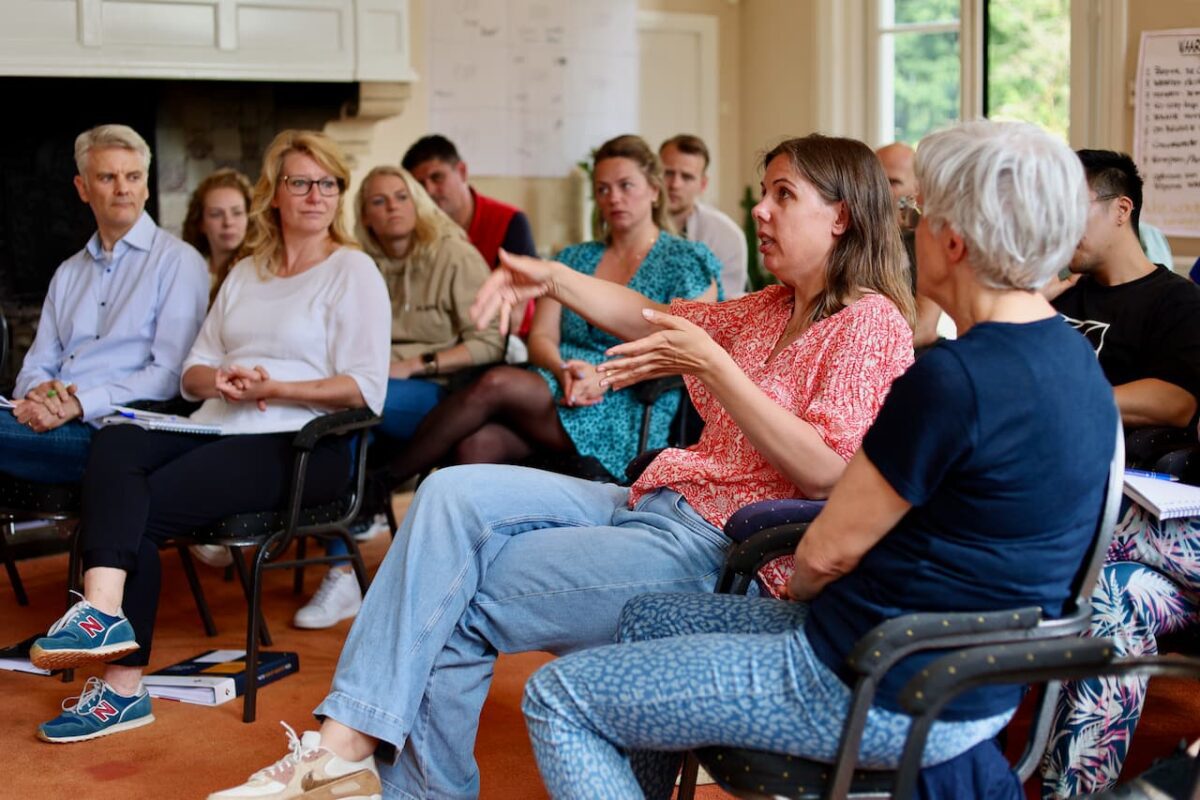
The following is included when you take the NLP Practitioner Training Course
- 8 energetic and inspiring training days
- International NLP Practitioner certificate accredited by the American Board of NLP (ABNLP)
- Syllabus (both an e-book and a printed version)
- Access to E-learning environment with videos and audios to be able to practice extra with NLP
- Lunch, fruits, coffee and tea
- Plenty of room for personal 1-on-1 guidance and mentoring.
- Varity of experienced and renowned NLP trainers and experts
- Being assured of up-to-date insights from NLP and from the point of view of practical psychology
- Lifelong “subscription” to the services of the UNLP trainers and professionals
- The possibility to take the training again free of charge at any time (you only pay for lunch/coffee/tea)
For whom?
The NLP Practitioner Training Course is attended by people from diverse backgrounds regarding education, age, interests and professions. The training is especially suitable for 3 target groups.
For anyone who wants to use NLP for personal growth.
For example, you want to communicate better, you want to get more control over your thoughts, you want to create more space in how you feel or you want to be less sensitive to the judgment of others. NLP is also suitable if you want to learn how to better achieve your goals, be more successful in what you want to achieve or be more positive in life.
For anyone who wants to use NLP for business purposes. For example, you want to exert more influence on employees or colleagues, be able to make a deep connection with others or learn to better understand other people. But NLP is also suitable for making teams better working and functioning together, being more productive in your work and showing more authentic leadership.
For coaches, trainers and consultants. The programme gives you in-depth insight into the (unconscious) psychology of personal development and you learn to make rapid and transformational interventions for the healthy functioning of clients, participants, employees and patients.
Professions that are widely represented: teachers, accountants, managers, advisors, real estate agents, team leaders, general practitioners, psychologists, physiotherapists, account managers, directors, therapists, social psychiatric nurses, project counsellors, consultants, social workers, activity counsellors, heads of department, purchasers, editors, sales managers, technicians and marketeers.
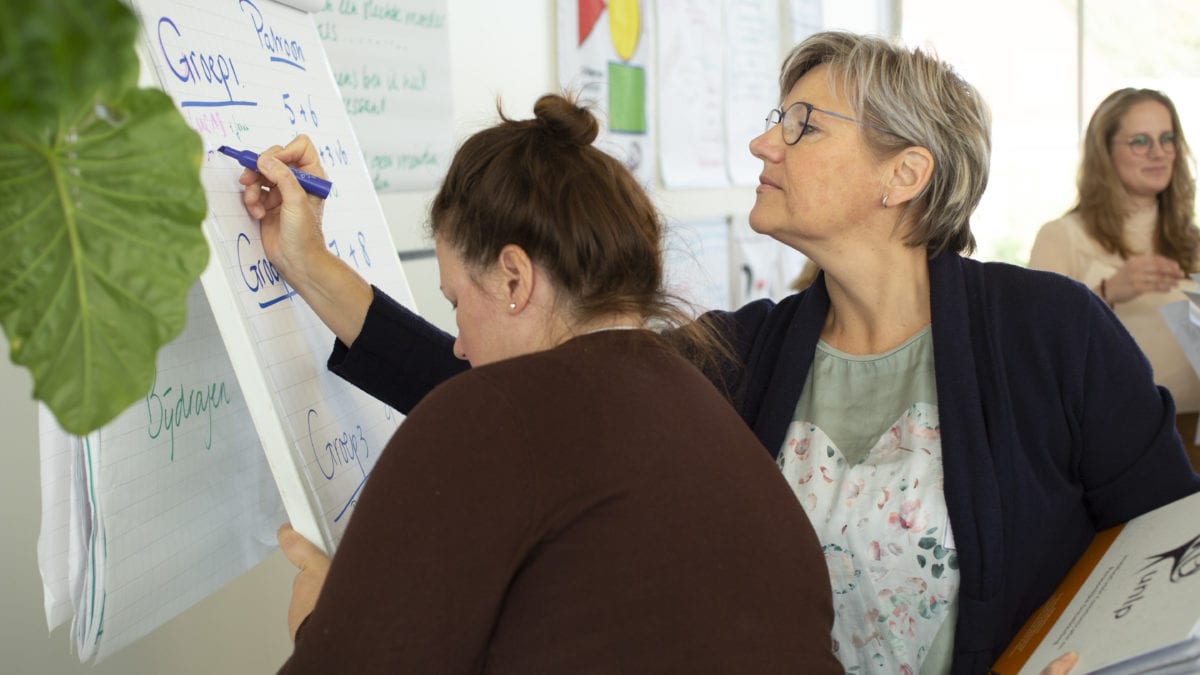
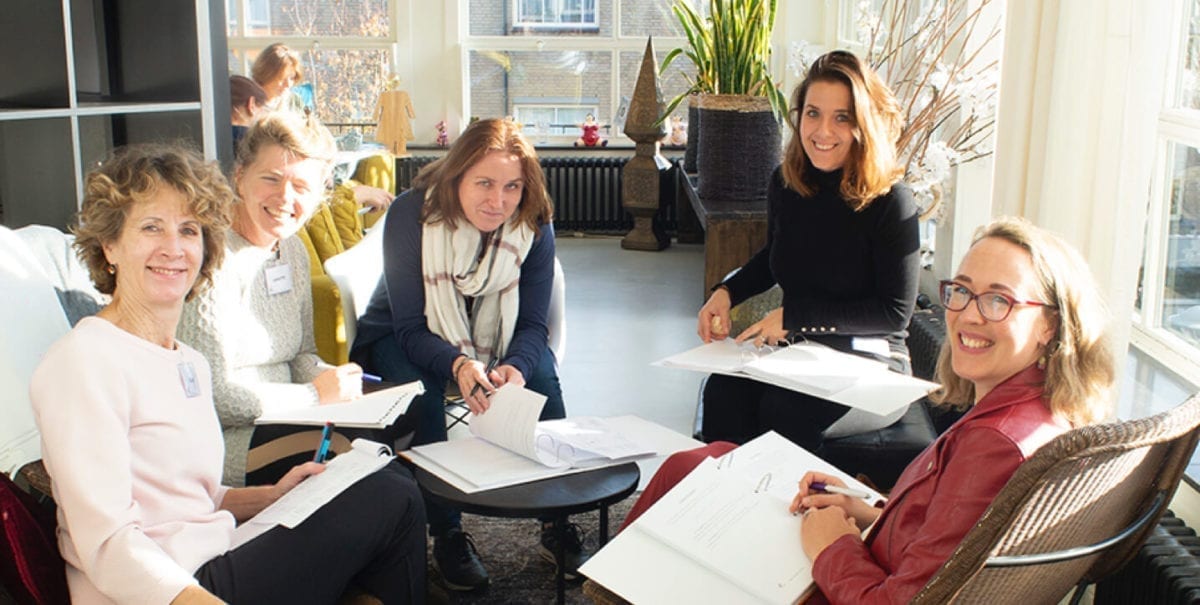
Admission requirements & accreditations
Every day we work to raise the quality of our training courses to an even higher level. This is reflected in the various accreditations of professional associations, for example.
What are the admission requirements?
No specific prior education is required for this training course. The training is available to everyone with different backgrounds in work experience and education. You do need at least a professional and intellectual ability at the level of senior secondary vocational and higher professional education / bachelor to be able to successfully follow the training.
What is the study load?
The NLP Practitioner Training is an intensive training. In addition to 8 days of intensive training, you will get access to the e-learning environment with videos and audios to be able to practice extra with NLP and there are optional intervision sessions with fellow participants. You are also working on the material outside the training days.
You can immediately put much of the study material into practice, in the conversations you have or during observations you do (for example, observing people when sitting on a terrace one afternoon). Before the training starts we ask you to read NLP for Dummies so you already have a basic knowledge of NLP. A list of recommended extra reading material is available but not required to successfully complete the course. In simple terms, in addition to the training days, there is a study load of 4 to 5 extra days during which you are consciously working on the study material.
What are the accreditations of this training course?
We think it’s important at ULP that the courses are (externally) accredited and monitored. The NLP Practitioner Program meets the highest standards of accreditation.
The Program is accredited by the ABNLP (American Board of NLP) and also by various professional associations such as the Dutch Association for Natural Medicine (LVNG). UNLP is also registered as an educational institution in the Central Register for Short Vocational Education and Training (CRKBO).
Quotes
"The NLP Practitioner English is a great way to get a better understanding of your own communication and behavioral patterns, and those of others. It can help you connect better to others, understand and reach your goals. I would recommend it to anyone who is ready to grow."
Kasha van Hal
"Joining a new country is always a challenge. The NLP Practitioner English gave me tools and insights on the specificity of others persons and cultures. Understanding myself to understand others better. Bring it on. I'm ready!"
M. Gauthier
“What's inside of you shows outside. NLP is a great way to create self awareness and scrape the layers within. It is especially valuable for expats seeking connection and dealing with uncertainty. With NLP, you'll learn how to steer your life and take charge."
Megha
"I've gained a lot of insight into myself. It has taught me to reflectie on myself and my own values, that's in my head and why do I do the things I do."
Jan Willem Nijman, manager
EXPERIENCES
Over the past years, more than 3000 participants have followed the NLP Practitioner Training Course at UNLP. Below you can read several experiences.
Lynn has followed the english practitioner and discovered all kinds of fun and exciting new things about the world and people around her. After removing certain barriers she went and found fascinating new things about different people and cultures she is willing to share with us today.
Aquila followed the english practitioner and found new ways to not just improve his professional career but also himself as a person. From being able to take constructive criticism and have a good conversation with others. To much benefit of his career and his personal life which he is willing to share with us today.
Have you ever wanted to say or do something you really wanted but when the time comes you just push forward with the idea? A feeling as if your trying to keep yourself from that which you really want. Tuba here has been there she shares her experience with following the english practitioner. Here she learned to get rid of her blockages and feel a lot more confident in the way she feels and thinks.
REGISTERING
For the NLP Practitioner Training Course
This training starts several times a year. The programme takes place in ‘s-Graveland (Hilversum) or in Amsterdam. The training times are daily from 09:30 AM to 6 PM. On day 6 and day 8 the training days end around 5 PM.
Practical information
Upcoming startdate:
16 march in Amsterdam
Opleidingsduur:
8 days intensive training, with space for relaxation
Free consultation with NLP trainer Danielle Jansen
Duration: 30 minutes
Contact: By telephone (or Google Meet).
Have your own 30 minutes introduction and information conversation with Danielle.
The only thing you have to do is click on the button below.
During this session with Danielle you gain more insight in your goals, who you are and how to make the right choices for you. You will experience some of the amazing possibilities NLP gives you. To get out of life it's important you learn how to connect with yourself and others. Especially for Expats who are new to the Netherlands, or are here for a few years now and want to deepen the connection with their environment.
Download our brochure
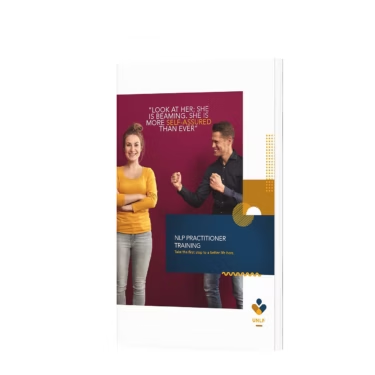

FREQUENTLY ASKED QUESTIONS
What is NLP?
NLP (Neuro-Linguistic Programming) is a collection of mental techniques that you can use for all kinds of purposes. For example, to turn limited beliefs into empowering beliefs, to better control your emotions and to counter fears such as public speaking.
I remember very well that I had to give a presentation at school. I got nervous just thinking that I had to talk to the whole group. And what did my mother say? “Pretend that all people including the master are naked in the classroom!” It was a very simple and effective technique that I got from my mother as a child.
NLP was invented in the 1970s by Richard Bandler and John Grindler. Since then hundreds of highly effective mental techniques have been developed to ultimately create more freedom in how you feel, what you think and how you want to be.
I have registered, but will the training continue?
Yes, the NLP Practitioners Intensive Training is a popular course. Many participants register months before the start of the programme. You can therefore assume that the training will continue.
What happens if I miss a day?
We assume that you are present every day. Of course, you can unexpectedly miss a day. You then discuss with your trainer how to make up the missed course day.
Will my certificate be recognised?
UNLP is educational institution recognised by the Dutch government. In addition, your NLP Practitioner certificate is recognised by the worldwide association (ABNLP). Furthermore, there are numerous professional associations that recognise our training courses.
Is lunch included in the training?
Lunch is included in the training. Every day we set the table, serve the most delicious bread, make a nice salad and there are spreads for your sandwiches.
Do you prefer to eat something else? Feel free to take it with you (there is a refrigerator and a microwave) or you can get something in the nearby area.
Can I pay in installments or does everything have to be paid in one go?
Normally you pay within 30 days after registration.
In addition to this total payment within 30 days. There is an option to pay in four instalments. The additional fee is 25 euros per instalment.
Is NLP a therapy?
No, NLP is not a therapy. However, you can solve typical therapeutic problems with it. NLP is intended for people who want to grow and develop. NLP means freedom, to choose whether you get angry about that annoying colleague or family member or whether this person will give you peace or strength, freedom to choose whether you get anxious when you have to give a presentation or whether it will give you confidence or energy, freedom to feel the way you want, freedom to act the way you want and freedom to be who you want to be. In short: ULP means freedom to pursue your goals and follow your dreams. This is what NLP means. NLP is therefore suitable for anyone who wants to improve themselves.
Can you give an example of an NLP technique?
A typical NLP technique is being able to follow and interpret eye movements. In the Practitioner Training Course, you become extremely skilled in observing others. Eye movements tell you whether someone is talking to themselves, is reminiscing about past events or not. In this way you can be sensitive to the ethos of others. You can also find out, for example, whether someone is lying or not. If someone looks to the top left (seen from your own perspective), you know he is inventing something.
Do you really learn what is promised?
We live in a time where a lot is possible. 100 years ago you had to go into psychoanalysis for at least 3-5 years to get rid of a spider phobia. Nowadays you no longer have to walk around with a phobia. During the NLP Training course every day people are relieved of their phobia in 10 minutes time and time again.
With advanced mental techniques, a limiting belief such as “I am not worth it” can now be converted into a belief “I can be myself. I’m worth it”. The impact of traumatic experiences from the past can be significantly reduced and even be removed with NLP techniques, such as Trauma Technique or NLP Timelines.
Gradually, more and more people are discovering that they are not at the mercy of their thought and feelings, but that you can influence them yourself. You just need to know how. This is what you learn in an NLP Training Course.
What does a NLP training day look like?
The training days are very diverse, as every participant is different. We usually start in the morning with the explanation of a piece of theory, which is linked to various practical examples. We then demonstrate an NLP technique or NLP skill that is in line with the theory.
Next you will work on this skill or technique in subgroups. You do this under the guidance of the trainer or one of the training coaches. This way you can safely learn and experiment!
What is the minimum accreditation an NLP certificate must have?
There are many accreditations regarding NLP certificates. It makes sense, in any way, that there is recognition, because it still happens frequently that an institute is not recognised at all. Your certificate is then worthless if you want to register at another institute or a professional association.
A well-known recognition is the accreditation of the ABNLP (American Board of NLP). Such an accreditation is interesting because it is a worldwide recognition.
It is therefore advisable to take a training course preferably at an institute that has been accredited by ABNLP.
I find taking exams is very scary. …Do I have to take an exam for the NLP Practitioner training course?
If you are nervous about taking exams, with an NLP course you are actually at the right place. After all you learn at an NLP training how to get rid of specific fears!
Yet, we don’t have a formal exam at the end of the training, there is an evaluation during the last day of the training. However, you cannot fail or pass based on your performance during this last training day. It is a kind of personal reflection, so a memento for yourself!
Can I really redo the training for free, as often as I want?
Yes, you can! We think it is important that you can get everything possible from the training. Your life can look very different in a few years from today. Maybe you have another job, new hobbies, another family situation or new goals.
That’s why you always have the option to follow the training again. In each training group we have reserved special “review places”. You only pay for the accommodation and catering services (lunch, coffee, tea).
Is your question not listed?
Feel free to call our Student Support at (+31) 020 2610707 or send an email to: info@unlp.nl.

